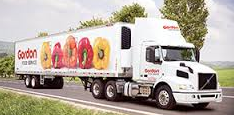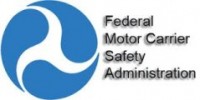Transportation
Kinney Pike’s Transportation Insurance Specialists have been working to find the best coverage for clients in the transportation industry for decades. With this breadth and depth of experience, we are able to advocate on your behalf and navigate the best resources to find our clients the best coverage for their specific needs.
Electronic Logging Device Rule
The Federal Motor Carrier Safety Administration is putting into effect an electronic logging device rule effective December 18, 2017. The rule will require standardized electronic recording devices to be installed into vehicles to accurately track driver data. The standardized data displays will be easier to create and share RODS with safety officials.
The electronic logging device (ELD) rule is designed to foster a more secure work environment for drivers while making it simpler to track, manage, and share records of duty status.
Carriers using AOBRDs (automatic onboard recording devices) will have four years to implement the ELD replacements. The ELDs will synchronize with a vehicle engine to automatically record driving time for easier and more accurate hours of service recording.
Effective Date:
02/16/2016
Compliance Date:
12/18/2017
To Read the rule, click the link below.
For more information on the ELD rule, see the PDF linked below.
Minimum Training Requirements for Entry-Level Commercial Motor Vehicle Operators
The Federal Motor Carrier Safety Administration established new minimum training standards for individuals applying for their commercial driver’s licenses (CDLs) for the first time. This also applies to those looking to upgrade their CDL to any level. These individuals are subject to the entry-level driver training (ELDT) requirements and must complete a prescribed program of instruction provided by an entity listed on FMCSA’s Training Provider Registry. FMCSA will submit training certification to State driver licensing agencies who will add the certification to the driver’s record after it has been verified.
Effective Date:
05/22/2017
Compliance Date:
02/07/2020
Commercial Driver’s License Drug and Alcohol Clearinghouse
The FMCSA amended the Federal Motor Carrier Safety Regulations to establish requirements for the Commercial Driver’s License Drug and Alcohol Clearinghouse. The Clearinghouse is a database under the Agency’s administration that will contain information about violations of FMCSA’s drug and alcohol testing program for the holders of CDLs. This rule is mandated by the Moving Ahead for Progress in the 21st Century Act (MAP-21). It will improve roadway safety by identifying commercial motor vehicle (CMV) drivers who have committed drug and alcohol violations that render them ineligible to operate a CMV.
Effective Date:
01/04/2017
Compliance Date:
01/06/2020
Update: Passengers in Large Commercial Trucks Now Required to Wear Seat Belts
As of August 8th, commercial drivers will be required to have passengers use seat belts if there is one available. The U.S. Department of Transportation’s Federal Motor Carrier Safety Administration (FMCSA) published a survey in March 2014, finding that commercial motor vehicle passengers use seat belts at a lower rate (73 percent) than commercial drivers (84 percent). Federal laws have long required that all commercial drivers use their seat belts, now they will require that commercial passengers do the same.
Click here to read a copy of the final rule.
Update: Vermont Creates ‘Chain-Up’ Areas on Route 9
The Vermont Truck & Bus Association revealed that there will be new requirements for truckers to use chains on VT Route 9 during winter weather. The state has created special ‘chain-up’ zones for trucks along Route 9, between Bennington and Wilmington. The winding stretch of road is a vital Vermont trade route that has been the scene of many traffic issues during the winter months. Due to the particular danger to tractor trailers, these chain-up areas were created as safe spots for truckers to pull over and attach or remove tire chains during winter weather advisories. These new requirements apply to all vehicles over 26,000 + lbs. Every driver will have to apply their chains when road signs indicate wintry road conditions. Lighted signs will indicate when chains are necessary. When the roads are clear, the lights will turn off and chains are not necessary.
Please Check New England 511 for the most up to date information on road conditions.
Our locally-based professional staff work with single trucks, fleets hauling for hire, fleets hauling their own product, the busing industry and more. Our transportation insurance professionals have expertise with everything from trucking policies to legislative changes, and CSA requirements that affect the transportation industry. We assist our clients with necessary training on defensive driving, CSA training, Department of Transportation rules and regulations, mock audits and much more. For years, Kinney Pike has been a trusted source of advice and coverage for local businesses in this industry, and we have been doing all that we can to maintain and improve ourselves to better serve them.
To further enhance our range of services, we are an active member of the Vermont Truck and Bus Association, and our Claim and Loss Control Specialists are second to none. Our efficient and prompt response to certificate requests will ensure that your trucks stay on the road, not stuck in terminals. Our goal is to help you in ensuring that your business remains fully operational and that our specialists will always be available to help you. Our transportation insurance clients include:
- Box Trucks
- Dump Trucks
- Front Loaders
- Tractors
- Semi Trucks
- Garbage Trucks
- Flatbed Trailers
- Tank Trucks
- Distribution Equipment
- And More
Transportation Specialists

Justin Barwood
Principal
p: 802-295-3329
View Bio | Email Me
Sandra Delisle
AAI, CISR - Commercial Lines Account Executive / Owner
p: 802-295-3329
View Bio | Email Me
Relevant Resources

New Food Safety Transportation Regulations
The new regulations require shippers, carriers by motor vehicle or rail vehicle, receivers, and other persons engaged in the transportation of food to use sanitary transportation practices to ensure that food is not transported under conditions that may render the food contaminated. Read more

InGear Express Trucking News – FDA
The final ruling of the FDA Food Safety Modernization Act on Sanitary Transportation of Human and Animal Food was published on April 6, 2016, and goes into effect on June 6, 2016. This final […] Read more

Grace Period for Medical Examiners
The Federal Motor Carrier Safety Administration (FMCSA) published guidance allowing a 120-day grace period during which Medical Examiners may use either the current or newly revised versions of the Medical Examination Report (MER) form and Medical Examiner’s Certificate (MEC). Read more





